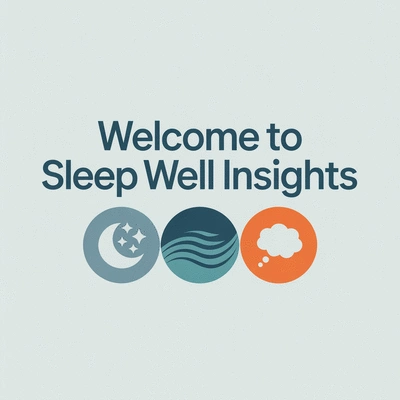Did you know that insomnia can affect your productivity, relationships, and overall well-being? Understanding its nuances is crucial for anyone seeking restful nights. Here’s your chance to uncover the key insights that can pave the way to better sleep.
What You Will Learn
- Insomnia is classified into three main types: Acute, Chronic, and Comorbid, each requiring different management strategies.
- Acute insomnia typically resolves once the triggering stressor is removed, while chronic insomnia may indicate underlying health issues.
- Insomnia can lead to significant life impacts, including irritability, concentration issues, and physical health problems.
- Identifying your sleep patterns and triggers is essential for effective insomnia management, enabling informed adjustments to your bedtime routine.
- Practical steps, such as establishing a consistent sleep schedule and creating a calming bedtime routine, can greatly enhance sleep quality.
- Keeping a sleep log helps in recognizing habits that affect sleep and supports tailored approaches for improvement.
Insomnia: Acute vs. Chronic & Its Impact
Understanding the nuances of insomnia and its effects helps in identifying appropriate management strategies.
Acute Insomnia
Short-term sleep problems, often triggered by stressful events or changes in routine. Tends to resolve once the stressor is removed.
Chronic Insomnia
Lasts >3 nights/week for >3 months, usually linked to underlying health issues. Requires comprehensive intervention.
Impact on Daily Life
- Increased irritability & mood swings
- Lack of concentration & memory issues
- Physical health problems (headaches, digestive issues)
Understanding Insomnia: A Comprehensive Overview
Have you ever found yourself lying awake at night, your mind racing while your body craves sleep? This is a common experience for many, and it falls under the umbrella of insomnia. In this section, we’ll dive deep into what insomnia truly means, explore its various types, and highlight the profound impact it can have on our daily lives.
Insomnia isn't just about having trouble sleeping; it's a complex issue that can manifest in different forms. Whether it's difficulty falling asleep, staying asleep, or waking up too early, understanding these nuances is crucial for anyone seeking better sleep quality.
Defining Insomnia and Its Types
Insomnia refers to the inability to sleep well on a regular basis. It can be classified into several types, including:
- Acute Insomnia: Short-term sleep problems often triggered by stressful events or changes in routine.
- Chronic Insomnia: Lasting for more than three nights a week for at least three months, usually linked to underlying health issues.
- Comorbid Insomnia: Occurs alongside other conditions such as anxiety or depression.

Each type of insomnia can require different approaches for management and treatment. It’s essential to identify which type you may be experiencing to tailor your path toward restful sleep. For a deeper understanding of insomnia and its various forms, you can refer to comprehensive resources like the Sleep Foundation's detailed guide on insomnia.
Acute vs. Chronic Insomnia: Key Differences
Understanding the key differences between acute and chronic insomnia can help you recognize the nature of your sleep challenges. Acute insomnia can often resolve on its own once the stressor is removed, while chronic insomnia typically requires a more comprehensive intervention. If you notice that your sleep disturbances persist beyond a few weeks, it’s important to seek guidance. The CDC also provides valuable insights into the impact of insufficient sleep, underscoring the importance of addressing persistent sleep issues.
At Sleep Well Insights, I emphasize the importance of distinguishing between these types because they influence treatment options. Remember, it's not just about counting sheep; it's about understanding the root cause of your sleeplessness.
The Impact of Insomnia on Daily Life
Insomnia can affect every aspect of your life. From decreased productivity at work to strained relationships, the ripple effects are significant. People suffering from insomnia often report experiencing:
- Increased irritability and mood swings
- Lack of concentration and memory issues
- Physical health problems, such as headaches or digestive issues
This is why addressing insomnia is so important. By recognizing its impact, we can take proactive steps to improve our sleep quality and, in turn, our overall well-being. The National Center for Biotechnology Information (NCBI) offers extensive research on insomnia, highlighting its pervasive effects on health.
Identifying the Common Causes of Insomnia
When it comes to managing insomnia, identifying the underlying causes is critical. There isn't a one-size-fits-all solution, as various factors can contribute to your sleep struggles. Let’s take a closer look at these potential causes.
Interactive Poll: Share Your Experience!
Have you ever struggled with insomnia? What do you believe is the primary cause of your sleepless nights? Select one of the options below:
Summarizing Key Insights on Insomnia Causes and Identification
Understanding the factors contributing to insomnia is crucial for taking the first steps toward better sleep health. By identifying the underlying causes of your sleep difficulties, you can work toward effective solutions tailored specifically to your needs. Remember, insomnia is often a multifaceted issue, affected by psychological, lifestyle, and medical factors, and recognizing these can lead to significant improvements in your nightly rest!
The Importance of Understanding Your Sleep Patterns
Being aware of your sleep patterns can be a game-changer when it comes to tackling insomnia. Keeping track of when you fall asleep and wake up helps you identify trends and triggers that may be affecting your sleep quality. For instance, you might notice that certain behaviors, like late-night screen time or caffeine consumption, result in restless nights. This understanding empowers you to make informed adjustments to your bedtime routine!
- Monitor your sleep duration and quality regularly.
- Identify habits that promote or hinder your sleep.
- Reflect on emotional and physical states before bedtime.
By actively engaging in this process, you can begin to uncover valuable insights that can support your journey toward improved sleep health.
Taking Action: Next Steps to Improve Sleep Health
Once you've identified the causes of your insomnia, it's time to take action! There are several strategies you can implement to enhance your sleep hygiene and overall well-being. Here are some practical steps:
- Establish a consistent sleep schedule by going to bed and waking up at the same time every day.
- Create a calming bedtime routine that includes activities like reading or meditation.
- Limit exposure to screens and bright lights at least one hour before bedtime.

These steps can create a more conducive environment for sleep, making it easier for you to drift off into a restful night!
Utilizing Sleep Logs and Journaling for Better Awareness
Keeping a sleep log or journal can be an incredibly effective tool in your quest for better sleep. This process allows you to document your daily habits, mood, and sleep patterns in one place. You can note various factors, such as:
- What time you went to bed and woke up.
- Any naps taken during the day.
- Daily stressors or emotional triggers that might have influenced your sleep.
By reviewing this log regularly, you can see connections between your daily activities and your sleep quality, leading to actionable insights for improvement. I encourage you to give this a try—monitoring your sleep may reveal surprises about your unique sleep challenges!
Frequently Asked Questions About Insomnia
- What are the three main types of insomnia?
- The three main types of insomnia are Acute Insomnia (short-term), Chronic Insomnia (long-term, lasting over three months), and Comorbid Insomnia (occurring with other conditions).
- How does acute insomnia differ from chronic insomnia?
- Acute insomnia is typically short-term and often triggered by stressful events, resolving once the stressor is gone. Chronic insomnia, however, lasts more than three nights a week for at least three months and often indicates underlying health issues, requiring more comprehensive intervention.
- What are the common impacts of insomnia on daily life?
- Insomnia can significantly impact daily life by causing increased irritability, mood swings, lack of concentration, memory issues, and various physical health problems like headaches or digestive issues.
- Why is it important to understand your sleep patterns?
- Understanding your sleep patterns helps identify trends and triggers that affect your sleep quality, such as late-night screen time or caffeine consumption. This awareness empowers you to make informed adjustments to your bedtime routine for better sleep.
- What practical steps can I take to improve sleep quality?
- Practical steps to improve sleep quality include establishing a consistent sleep schedule, creating a calming bedtime routine (e.g., reading or meditation), limiting exposure to screens before bed, and utilizing sleep logs to track habits and patterns.
Encouraging Healthy Sleep Habits
Practical Tips for Better Sleep Hygiene
Developing healthy sleep habits can significantly improve your chances of achieving restful nights. By incorporating some simple yet effective strategies into your daily routine, you can set the stage for better sleep. Here are some tips to get you started:
- Limit caffeine and nicotine intake, especially in the hours leading up to bedtime.
- Create a relaxing sleep environment that minimizes noise and maintains a comfortable temperature.
- Engage in regular physical activity during the day to promote better sleep at night.
Implementing these changes can have a powerful impact on your overall sleep quality, helping to combat the effects of insomnia!
Incorporating Relaxation Techniques and Mindfulness into Your Routine
Relaxation techniques can also play a crucial role in improving your sleep health. Simple practices like deep breathing, meditation, or gentle yoga can help calm your mind and body, making it easier to transition into sleep. By setting aside even just a few minutes each night for these activities, you can create a soothing bedtime ritual that promotes relaxation.
Resources for Further Reading and Support on Insomnia
If you're looking for additional information and support regarding insomnia, I highly recommend exploring the wealth of resources available at Sleep Well Insights. We provide science-backed articles, expert-reviewed content, and practical strategies that can aid you in your journey to better sleep. Remember, you don’t have to navigate this path alone—there's a community ready to support you every step of the way!
Recap of Key Points
Here is a quick recap of the important points discussed in the article:
- Insomnia is characterized by difficulty falling asleep, staying asleep, or waking up too early, with various types including acute, chronic, and comorbid insomnia.
- The impact of insomnia extends beyond sleep disturbances, affecting mood, concentration, and overall physical health.
- Identifying the underlying causes of insomnia is crucial for effective management and personalized treatment approaches.
- Monitoring sleep patterns and habits can reveal triggers that disrupt sleep, enabling better sleep hygiene practices.
- Implementing a consistent sleep schedule and a calming bedtime routine can significantly improve sleep quality.
- Utilizing sleep logs can provide insights into how daily activities and emotional states influence sleep quality.









